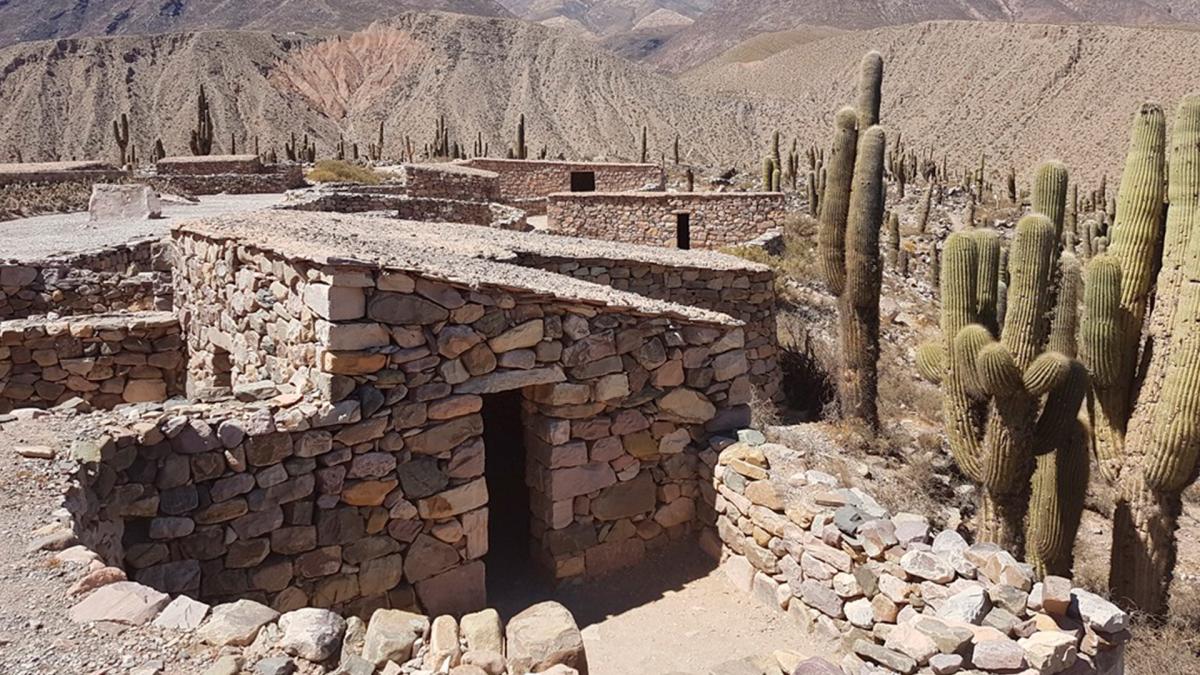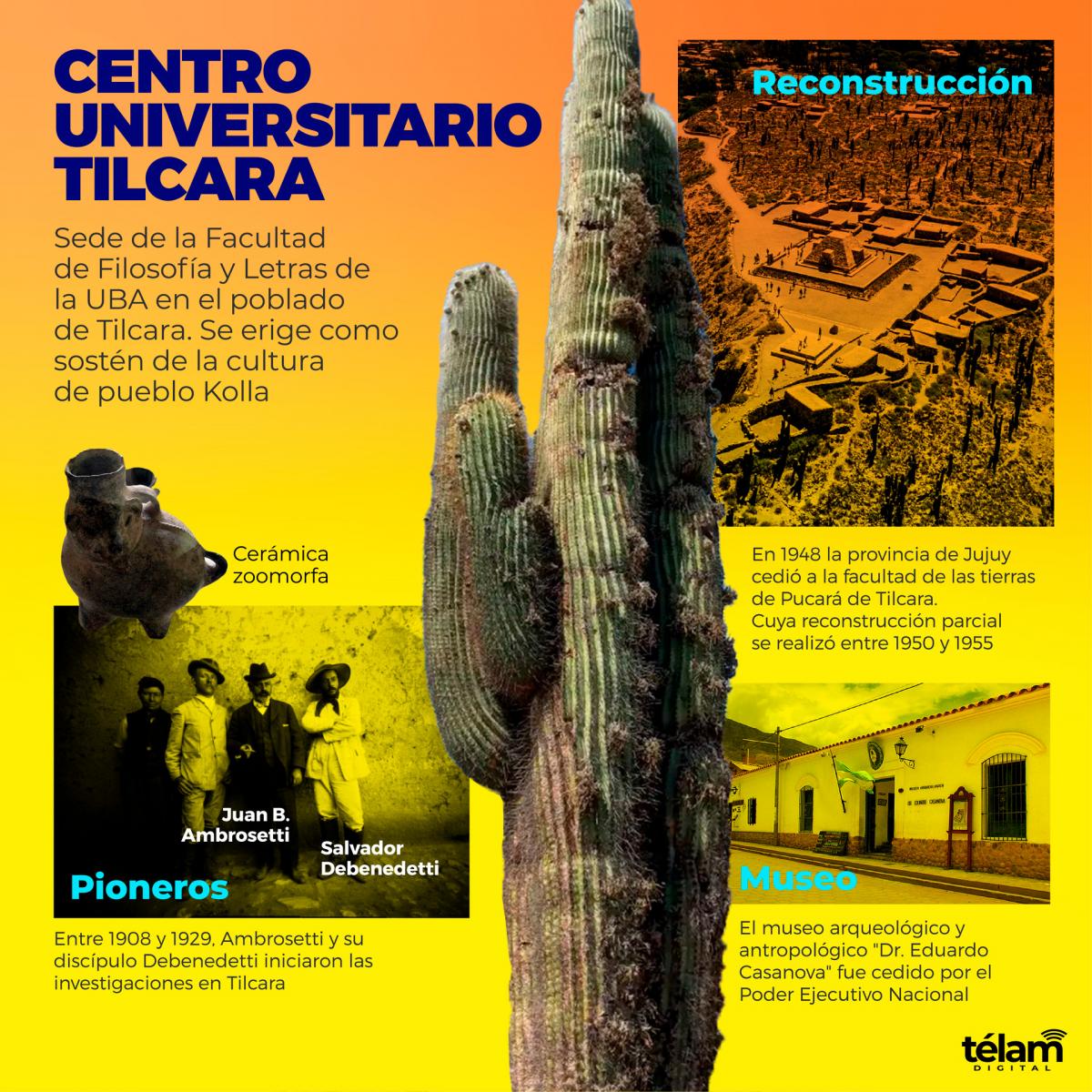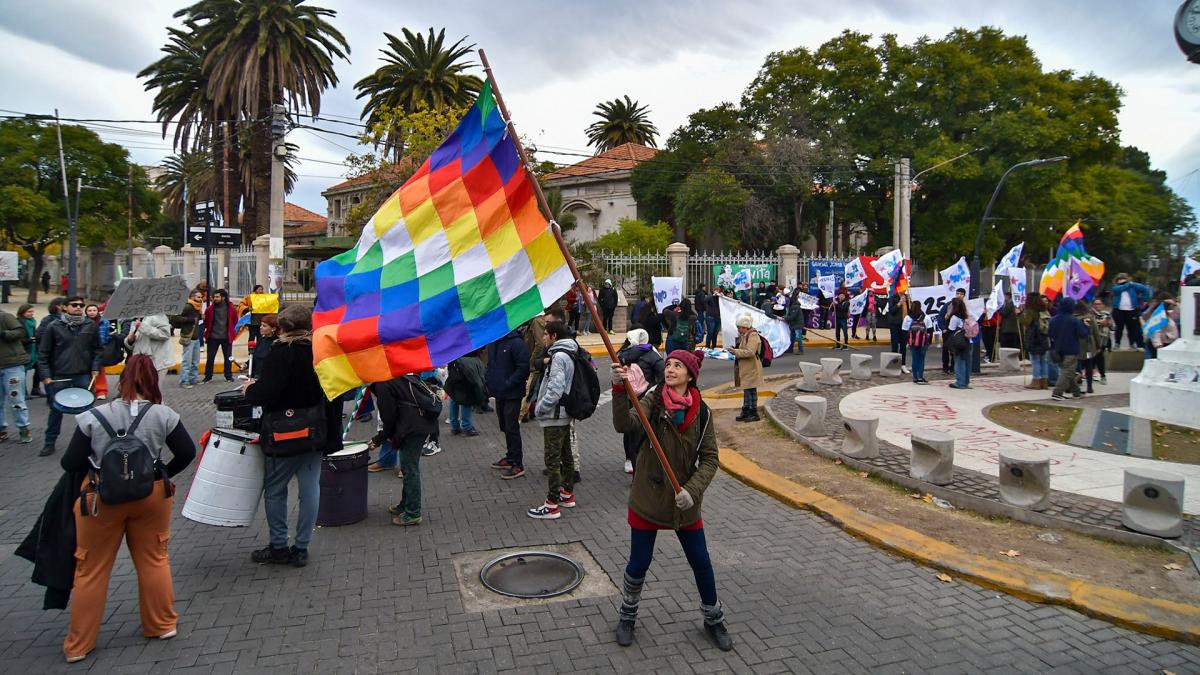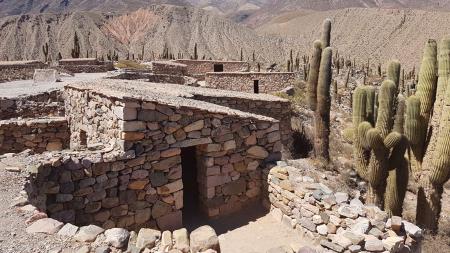 Photo: Univ Nac Comahue
Photo: Univ Nac Comahue
The Tilcara University Center (CUT), headquarters of the Faculty of Philosophy and Letters of the University of Buenos Aires (UBA) in the town of Quebrada de Humahuaca, stands as a support of the culture of the Kolla people and at the service of social demandswhich, in the current context in Jujuy, position it as a “protection channel to ensure human rights,” according to its native workers, who joined the rejection of the expressions of Governor Gerardo Morales, who threatened to kill him. expropriation.
On Monday, July 10, in an interview with Jujuy TV channel 7, Morales accused “the employees” of the University Center of “incentivizing the (route) blockade in Tilcara.
“I already made a presentation to the UBA; if they don’t answer me, we are going to expropriate… Those are the ones who encourage the cuts, not all, most of the employees are the ones who encourage the cut in Tilcara. We know who they are,” he said the governor and pre-candidate for vice president in the Together for Change formula headed by Horario Rodríguez Larreta.
The threat was answered by the dean of the Faculty of Philosophy and Letters of the University of Buenos Aires (UBA), Ricardo Manetti, and then the Minister of Education, Jaime Perczykand the National Inter-University Council (CIN) joined in expressing their concern and alert after members of the province’s police broke into a meeting of the Superior Council of the National University of Jujuy (UNJU).
“Here there is more than 100 years of history of joint work between the university and the indigenous communities, between science and ancestral wisdom, which could not have been done in any other way”
The historical and current role of the house of studies
A centenary university work identifies the CUT with the original peoples, intensifying the dialogue between the past and the present; and regarding social problems, operating reflexively towards the search for solutions, all in a job that adds more than 60 local residents, the highest percentage within its broad scheme.
The visited archaeological site “Pucará De Tilcara” and, next to it, the also appreciated Altura Botanical Garden are part of the CUT, as well as the “Dr. Eduardo Casanova” Archaeological and Anthropological Museum.which located in the center of the town, is close to turning 55, providing an integrating vision of the past of the Andean region of NOA, through the material culture of the societies that inhabited the territory.
The spaces originated from the work of Juan B. Ambrosetti and Salvador Debenedetti, who between 1908 and 1929 led four seasons of research at the Faculty of Philosophy and Letters in the pucará (fortress) of Tilcara.
Within this framework, the idea of a museum complex that included the reconstruction of the site and a museum that would show the product of the studies carried out in that and other territories of the region arose.
 Infographic on UNT data.
Infographic on UNT data.
It was not until 1948 that they managed to advance, when the province of Jujuy ceded to the Faculty the lands where today “Pucará de Tilcara” is located. and whose partial reconstruction was carried out between 1950 and 1955.
While, The transfer by the National Executive of an old house in front of the Álvarez Prado de Tilcara square, was what made it possible to make the museum a reality, which opened its doors in 1968.
Over the years, the territorial work began to encompass the Altura Botanical Garden, the operation of the Tilcara Interdisciplinary Institute, a university residence and a Regional Research Center, among others.
In 2013, with the purpose of bringing together the great diversity of activities that were carried out, the Tilcara University Center (CUT) was born as such.headquarters of the Faculty of Philosophy and Letters, which reaffirms and updates the commitment to work and contribute to federal, regional development and Latin American integration in a border area between national states.
“Here there is more than 100 years of history of joint work between the university and the indigenous communities, between science and ancestral wisdom, which could not have been done in any other way,” he commented, in dialogue with Télam, Sebastián Sardina, who is part of more than 40 permanent non-teaching workers, along with twenty other non-teaching, teaching and administrative employees, all from the town.
“From the CUT we have the mission of serving the people in opening borders, in theorizing our culture, our vision of the land, of our agricultural products, of caring for water”
“From the CUT we have the mission of serving the people in opening borders, in theorizing our culture, our vision of the land, of our agricultural products, of caring for water,” he said when pondering the existing work in direct relation with the local community and with the shared purpose of sustaining ancestral legacies.
Regarding collaborating with different demands, praised the promotion of initiatives such as annual festivals to benefit the nursing home and the area hospital; the purchase of books and merchandise for schools in isolated towns; the granting of scholarships to primary and secondary school boys with better averages, among others.
Of the local problems, he referred, meanwhile, to the complex context that Jujuy is going through and in which, he maintained, they believe that “the UBA in Tilcara is today a protection channel to ensure human rights.”
 Photo: Nicolas Varvara
Photo: Nicolas Varvara
“The rule of law is absent in the province, so why not think of the university as support for all this subjugation, for this incredible repression that the people are suffering, with a very high level of violence and illegality,” he reflected on the matter.
“The government advances by imparting fear and the university has a mission, due to the 1918 reform, to go out into the streets, to extend its arm”he limited by rejecting the recent statements by Governor Gerardo Morales with accusations and threats of expropriation against the CUT, which generated expressions of repudiation throughout the national university system.
On the community ties that the CUT maintains, another of its workers, Florencia Barbarich, a biologist from Jujuy hired to work in the botanical gardenpondered, in dialogue with this agency, the existence of actions towards revaluing the importance of plants within the Andean culture.
“There are hundreds of pucarás in the province and they are mismanaged by the provincial government”
He also spoke of sustained work with local schools and even in connection with the town’s hospital, associated with children and adolescents with different abilities.
On the other hand, He rescued the permanent opening of the museum with courses, workshops and multiple other socio-cultural initiatives, and the work together with native communities in a socio-environmental observatory of Quebrada and Puna.
“The same people from Tilcara defend the presence of the UBA,” he commented, meanwhile, also rejecting the threatening statements of Governor Morales and with an “already old intention to expropriate Pucará.”
“There are hundreds of pucarás in the province and they are mismanaged by the provincial government,” He remarked while criticizing the talk of “recovering the Pucará for Jujeños as if there were a difference between Jujeños, and when – he said – we are all building for local development.”


